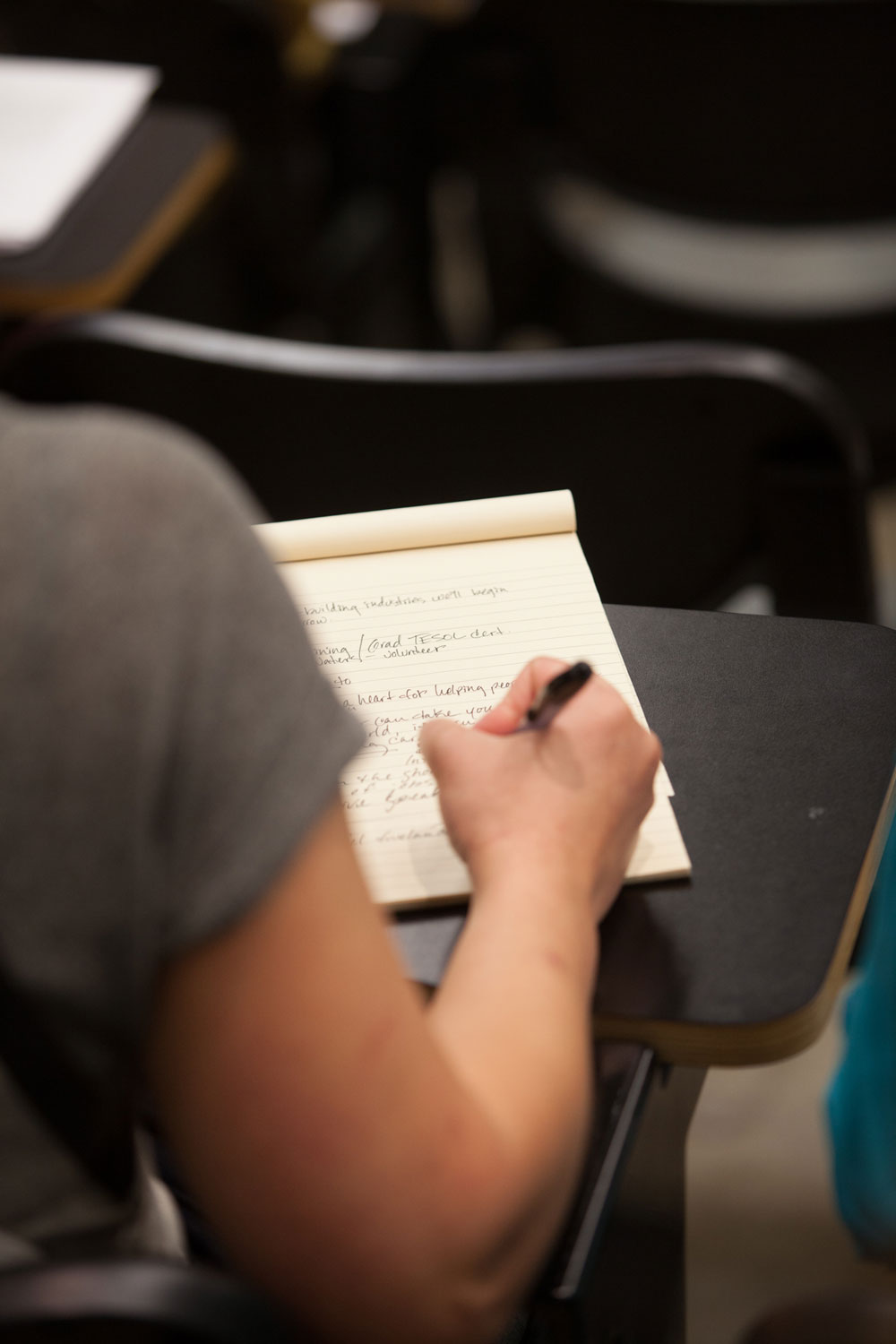English 104, Writing Studio (Fall, Summer)
English 105, Writing Studio (Spring)
The Writing Studio course is a one-hour elective that students may take at any point in their academic careers. The purpose of the course is for students to get extra help on their writing in a small group tutoring context. Class size is typically limited to 5-8 students.
In a Writing Studio course, the focus of instruction is the students’ own writings from other courses. The instructor helps students understand writing assignments—e.g., reflect upon specific guidelines, goals, and contexts—and provides advice through the drafting, revision, and editing phases. There are different course section designators for Writing Studio. Although students may enroll in any open sections, “S” sections are intended primarily for students from the Scholastic Enhancement Program, and “I” sections are intended primarily for international students.
- In both ENG 104 and ENG 105, small group interaction engages students in essential practices of college writing such as invention and design, peer response, critical thinking, research, documentation, revision, editing, and delivery.
- In any given Studio session, students might closely read an assignment description and discuss how to enter a project, rhetorically analyze the purpose and audience of a given writing project, workshop drafts at any stage of the writing process, and actively reflect over writing choices.
- The Studio asks students to share their final productions and process materials along the way.
- In this space, students learn to ask critical questions about writings from varied disciplines, and the class engages in a wider, more nuanced, conversation about academic conventions.
- In-class Studio activities may include invention exercises, small-group peer workshops, whole group discussion, reflective writing, written dialogues, questions, protocols, responses to other students’ writing, practice conferencing, question-posing and notetaking to facilitate revision.
For further information about Writing Studio courses, contact the Director of Composition in Bachelor Hall 356A, 513-529-5221.


